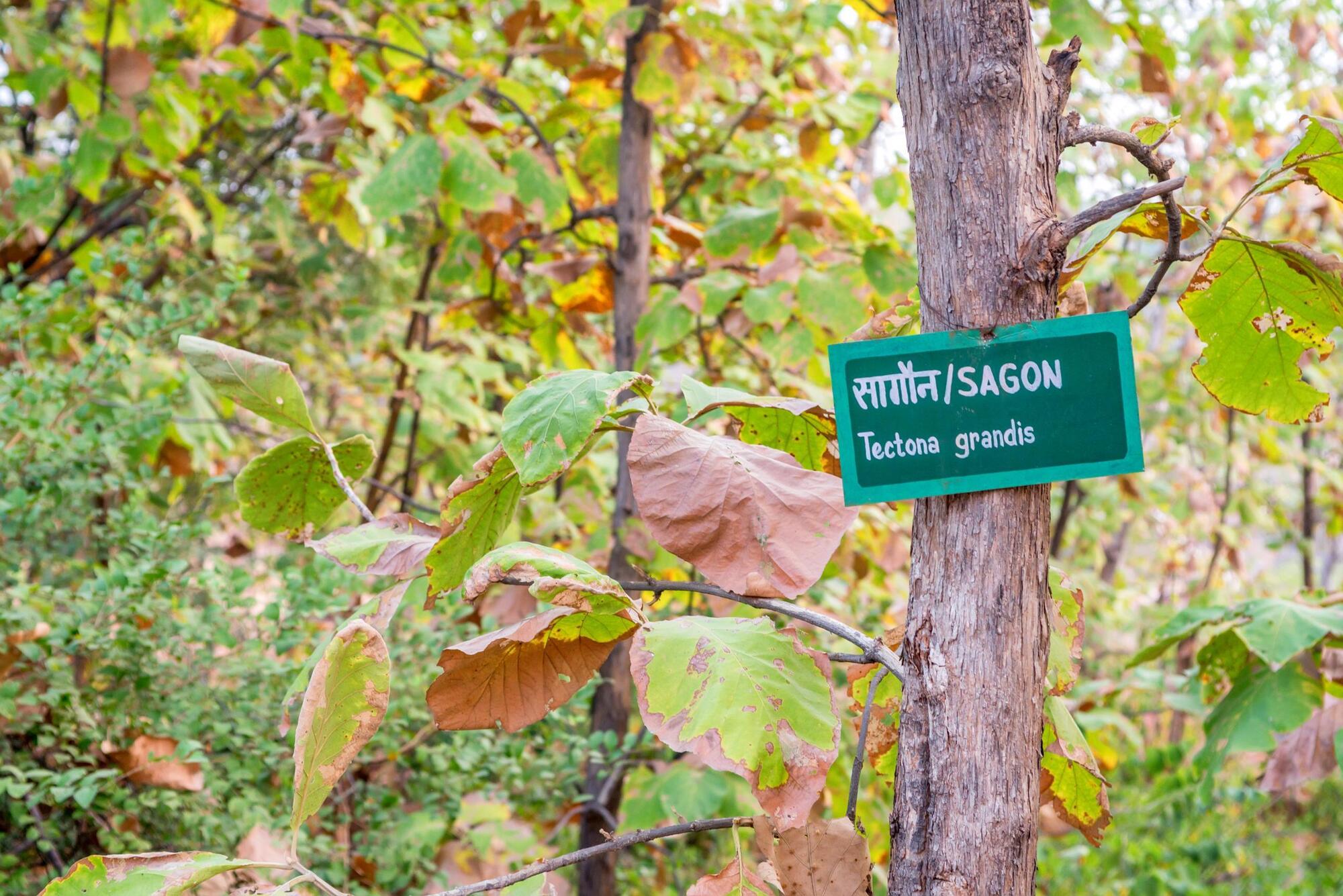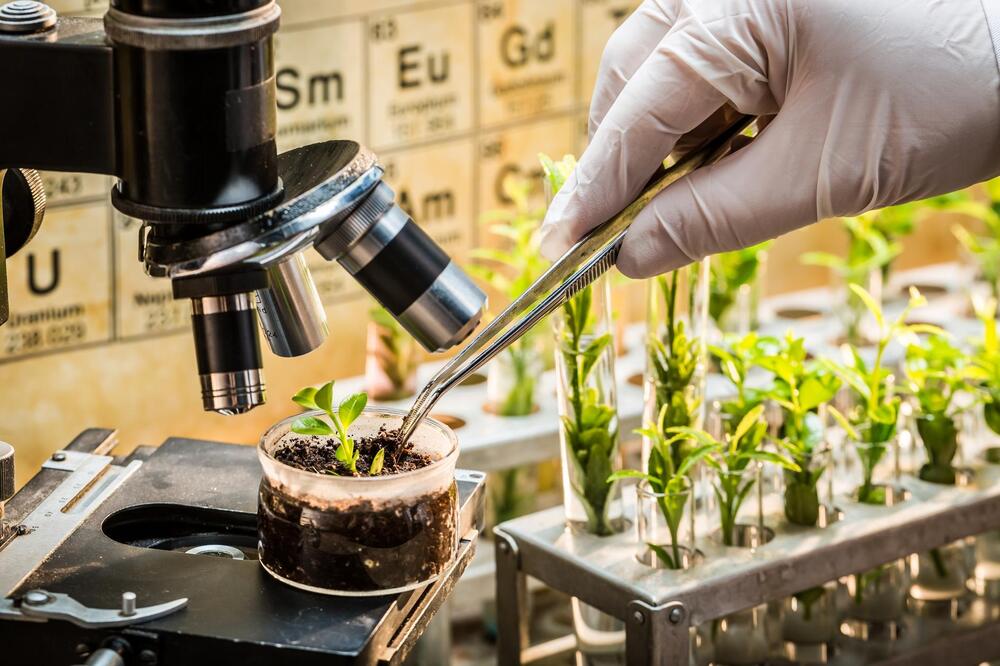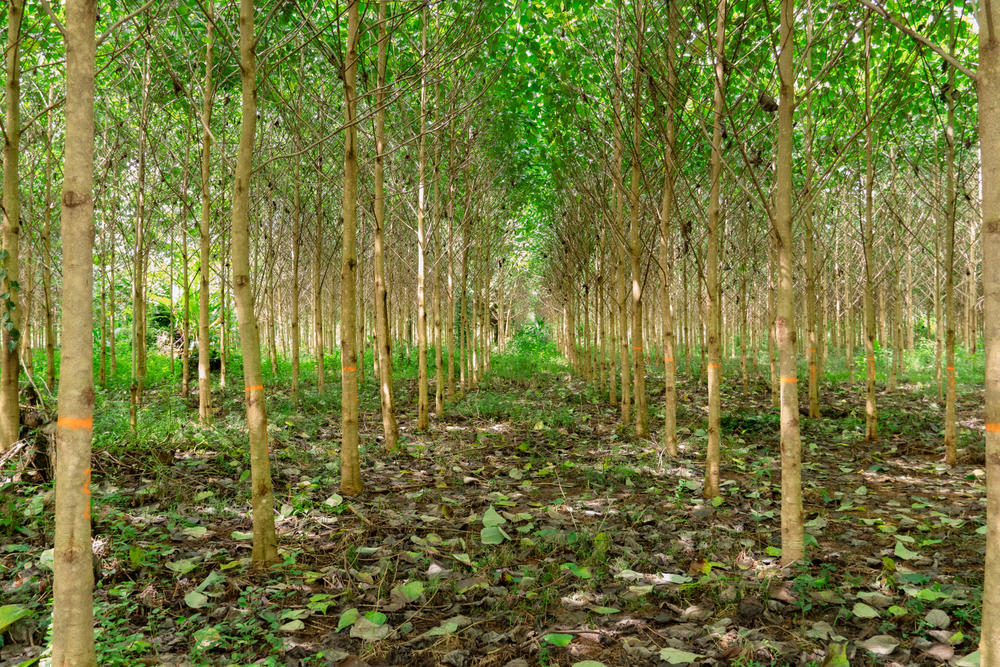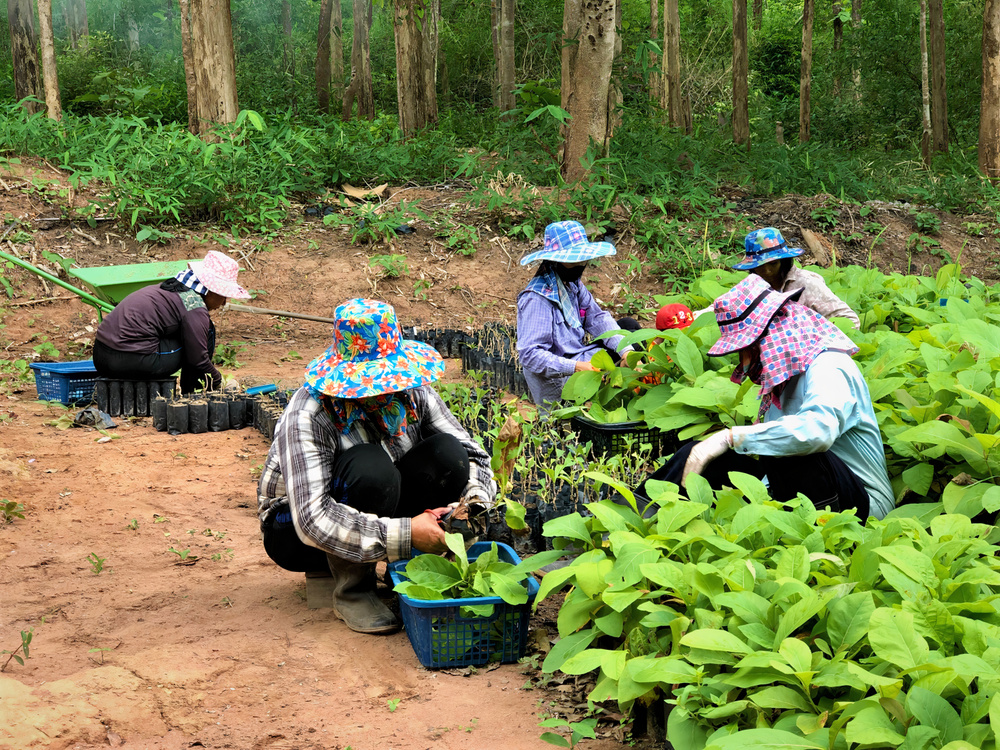ITTO-BMLEH webinar explores the use of innovative technology in promoting sustainable teak plantations and volume estimation
04 November 2025, Yokohama

Various current and emerging technological advances can be utilized to ensure the sustainable management of teak plantations worldwide. © ITTO
Various current and emerging technological advances can be utilized to ensure the sustainable management of teak plantations worldwide, as demonstrated by experts from Japan and India in a webinar on innovative technology for sustainable teak plantations and volume estimation.
The webinar, organized as part of an ITTO project that sought to advance quality timber production in smallholder and community-based teak plantations to improve livelihoods and social and environmental outcomes, highlighted the use of genetic adaptation analysis and artificial intelligence to develop resilient planting strategies and to estimate plantation volumes efficiently and accurately.
Held on 22 October 2025, the webinar is the fifth in a series hosted by ITTO and Germany’s Ministry of Food, Agriculture and Regional Identity (BMLEH). Yongyut Trisurat of Kasetsart University, Thailand, moderated the event.
Naoki Tani of the Japan International Research Center for Agricultural Sciences (JIRCAS) shared the results of their study on the genomic adaptation in teak associated with local climatic conditions in Java Island, Indonesia. Meanwhile, Ani A. Elias of the Indian Council of Forestry Research and Education (ICFRE)–Institute of Forest Genetics and Tree Breeding discussed a case study conducted in Kerala, India, on the use of an artificial intelligence (AI)-powered framework to estimate teak plantation volume.

Genomic adaptation analysis as a decision support mechanism in ensuring resilience
Exploring the relationship between genetic structure and local adaptation provides meaningful insights into the genetic origins and genetic adaptation capacity of teak. This is particularly important given the vulnerability of tropical species to climatic changes.
In his presentation, Prof Tani discussed the results of their study on the genomic adaptation of teak in relation to local climatic conditions. Using genome-wide sequencing data in eight sites where teak is naturally distributed (India, Thailand, Laos, and Myanmar) and nine Indonesian landraces, their study concluded that the teak population in Malabar, Indonesia, may have exhibited genetic resilience (i.e., sufficiently high genetic diversity) against projected climatic changes due to a lower genetic offset.
Such information, according to Prof Tani, provides useful insights towards sustainable teak plantations by identifying future-proof planting strategies that ensure resilience to climate change. For instance, their study suggests that the central and eastern regions of Java may be suitable for future teak plantations.

Applying AI towards improved estimation of teak plantation volume: The case of Kerala, India
Dr Elias, in her presentation, underlined the importance of field inventory in sustainable forest management and decision-making. It is important to assess growth, determine the harvestable timber volume, and plan the logistics for transporting harvested timber, among other tasks.
The traditional method of volume estimation, however, often requires significant time and resources. According to Dr Elias, the use of emerging technologies, such as AI, in tropical forest management, particularly in field inventory, enables more efficient resource use.
Based on this logic, Dr Elias and her team developed an AI-powered framework for more accurate timber volume estimation and applied it in a case study conducted in Kerala, India. The new method developed uses field images and a convolutional neural network to calculate volume.
According to Dr Elias, the AI-powered method is significantly faster than the existing method and is not limited by the number of trees present in the sample plot. This can reduce reliance on resource-intensive ground survey methods and provide data-driven insights for resource optimization and planning.

Innovative technology as a significant driver towards sustainable forest management
The presentations by Prof Tani and Dr Elias demonstrated how current and emerging technologies can be used to ensure the sustainable management of tropical forests, particularly through genetic adaptation analysis to identify future-proof planting strategies and an AI-powered framework to optimize resource use in estimating teak volume.
Speaking on behalf of ITTO Executive Director Sheam Satkuru, Mohammed Nurudeen Iddrisu, ITTO’s Director of Trade and Industry, said the webinar explored the concept of Earth Intelligence, which involves the integration of different information sources (i.e. Earth Observation, AI, socioeconomic, citizen observation, and Indigenous knowledge) with modelling, prediction, and scenario analysis “to address emerging threats and better support smallholders and informed decision-making.”
The webinar is the fifth installment in a series of 12 knowledge-sharing events organized under the ITTO-BMLEH project titled “Promoting Quality Timber Production in Smallholder and Community-Based Teak and Other Valuable Species Plantations in the Tropics.”
These webinars provide a platform for regional and international collaboration, information sharing, knowledge management, policy development, and outreach among key actors to strengthen sustainable smallholder teak and other species plantations.
—---------
Watch the previous ITTO-BMLEH webinar recordings by clicking here.